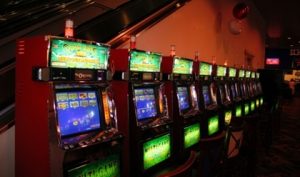As part of a collaborative enforcement effort in 2019 between the Michigan Gaming Control Board and Michigan Attorney General’s Office targeting illegal gambling operations, 14 businesses in the Great Lakes state were issued cease and desist orders.
Each of the 14 businesses that were investigated by state regulators claimed to operate redemption games, which according to the Michigan Legislature…
… games where the outcome “is determined through the application of an element of skill by the player,” are legal in Michigan. Redemption games do not include either of the following:
A game such as roulette, beano, cards, dice, wheel of fortune, video poker, a slot machine, or another game in which winning depends primarily upon fortuitous or accidental circumstances beyond the control of the player.A game that includes a mechanical or physical device that directly or indirectly impairs or thwarts the skill of the player.
Skill-based vs chance:
However, it was reportedly determined that rather than offering skill-based games, the locations were instead offering casino-style video slot machines, which are based on chance.
In a statement in an official press release, executive director for the Michigan Gaming Control Board, Richard S. Kalm, said…
“Illegal gambling can lead to money laundering and other crimes that impact the safety and security of Michigan communities. Legal gambling is taxed and regulated, and taxes go back into the community as funding for K-12 education. An illegal gambling opera 7BALL tion doesn’t support the community but instead siphons funds away from it.”
Steep penalty:
Rather than face potential criminal charges, each of the locations chose to shut down operations, Kalm said. If found guilty of running an unlicensed gambling business, the operator could be looking at a 10-year felony charge.
Also commenting on the collaborative effort, Michigan Attorney General Dana Nessel said…
“Gambling regulations are in place for a reason, and when bad actors choose to ignore the law, they must be held accountable. We’re grateful for the opportunity to work with our partners at the Michigan Gaming Control Board in putting a stop to these illegal operations.”
MLive reports that at least two of the businesses have reopened.
According to the Michigan Gaming Control Board, the locations that were ordered in 2019 to cease offering illegal gambling games by county are:
Kent County:
The Nudgemaster Café, 3514 Plainfield Ave., Grand Rapids. The cafe reopened in January.
Lapeer County:
Fortunes Skilled Gaming Lounge, 1777 South Cedar St., Imlay City.
Atlantis Internet Café, 759 East St., Lapeer.
Jackpot Island Café, 700 S. Main St., Lapeer.
Genesee County:
Burton Redemption Center, 5515 Davison Road, Burton.
Monte Carlo Café, 723 South State Road, Davison
Macomb County:
Jewlz Haven, 66783 Gratiot, Richmond.
Spinners 777, 43648 Schoenherr, Sterling Heights.
Lucky’s Skill Game Café, 66830 Van Dyke, Washington Township.
Oakland County:
X-Tech Internet Café, 290 South Telegraph, Pontiac.
Lucky’s 7160 Highland Road, Waterford.
Bingo City, 4443 Dixie Highway, Waterford. The operation appears to have reopened.
Waterford Redemption Center, 3687 Highland Road, Waterford.
Washtenaw County:
Stoney Creek Internet Café, 2040 Whittaker Road, Ypsilanti.
Record revenue:
In other news for the state, Detroit’s three casinos reported $1.454 billion in record adjusted gross revenue last year, with MotorCity Casino Hotel and MGM Grand Detroit having contributing record years. The latter led the trio with 43 percent of the market share with $623.5 million in revenue, which edged out its previous year record by 0.7 percent.



